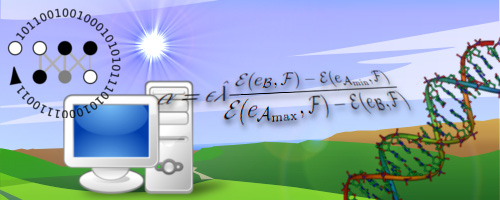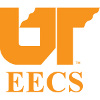Ph. D.

My doctoral research is an interdisciplinary work at the interface of mathematics, computer science and biology. Simulation is the unifying theme of my dissertation.
Biological Simulations and Biologically Inspired Adaptive Systems
Abstract
Many of the most challenging problems in modern science lie at the interface of several fields. To study these problems, there is a pressing need for trans-disciplinary research incorporating computational and mathematical models. This dissertation presents a selection of new computational and mathematical techniques applied to biological simulations and problem solving: (i) The dynamics of alliance formation in primates are studied using a continuous time individual-based model. It is observed that increasing the cognitive abilities of individuals stabilizes alliances in a phase transition-like manner. Moreover, with strong cultural transmission an egalitarian regime is established in a few generations. (ii) A putative case of hybrid speciation in three species of Heliconius butterflies is studied using a spatial, genetically explicit, individual-based simulation. Given the ecological and selective pressures observed, the hybrid origin of Heliconius heurippa is supported by the model. However, the coexistence of the parental species and the hybrid species is only transient in the simulation. (iii) Optimization and computational techniques were developed during the implementation of a model of adaptive radiation in Anolis lizards. An efficient and accurate numerical integration routine was developed and a parallel implementation was ran on Kraken, Cray’s XT5 supercomputer. These procedures improved the simulation’s running time by several orders of magnitude. (iv) Optimizations, both in execution time and memory usage, are proposed for some genetic operators extensively used in evolutionary algorithms and biological simulations. Speed-up ranging from two-fold to several orders of magnitude is achieved. A statistical analysis was conducted to ensure the reliability of the methods. (v) No-Free-Lunch (NFL) theorems are theoretical results concerning the performance of heuristic optimization algorithms. The characterization of function sets for which the Focused NFL theorem holds is shown. A generalization of NFL results to random algorithms is proven, as well as a new NFL theorem for random algorithms over arbitrary benchmarks.
About Me
![]() Edgar A. Duéñez Guzmán is a Senior Research Engineer at DeepMind.
Previously he was at Google, where he developed the first
machine learning system to select the index for Image Search.
During his academic career, he was a Postdoctoral fellow at the
Department of Biology at
KU Leuven working with
Tom Wenseleers in social evolution in microbes;
Edgar A. Duéñez Guzmán is a Senior Research Engineer at DeepMind.
Previously he was at Google, where he developed the first
machine learning system to select the index for Image Search.
During his academic career, he was a Postdoctoral fellow at the
Department of Biology at
KU Leuven working with
Tom Wenseleers in social evolution in microbes;
and a Research Associate at the
Department of Organismic and Evolutionary Biology at
Harvard University working with
David Haig in social evolution and imprinting.
Learn more...
Contact Info
E-mail: eaduenez {at} gmail {dot} com
 KU Leuven
KU Leuven OEB - Harvard
OEB - Harvard EECS - UTK
EECS - UTK FIT - Monash
FIT - Monash NIH
NIH HHMI
HHMI CIMAT
CIMAT


